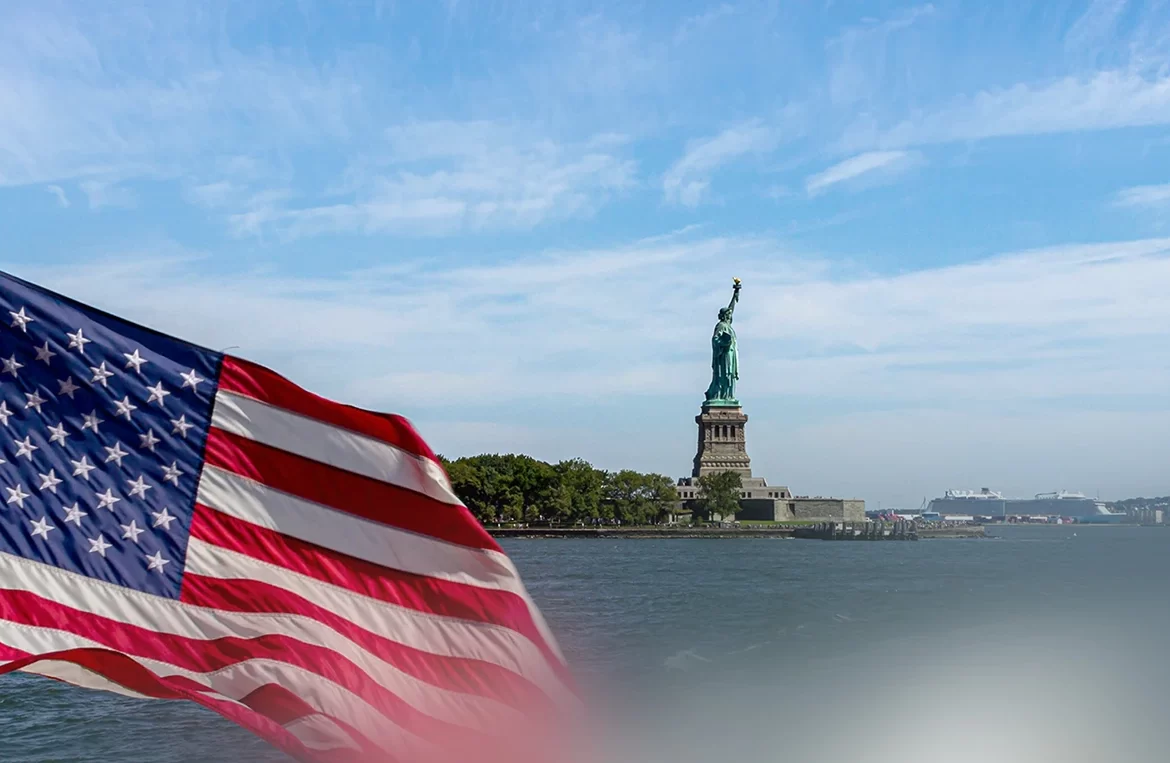Trump's Second Term Could Impact Santa Catarina's Economy
Donald Trump's reelection to a second term as President of the United States is expected to have direct and indirect consequences for the economy of Santa Catarina and Brazilian politics. The Republican's proposed economic policies, including the strengthening of protectionism and the imposition of tariffs on imports, could impact key sectors of the Santa Catarina economy.
Therefore, we analyze how the measures planned by the Trump administration may affect Santa Catarina's exports and the expected consequences for Brazilian politics.
How Does Trump's Policy Affect Santa Catarina's Exports?
Protectionism is one of Trump's trademarks. After all, Make America Great Again. For his second term, the former president announced his intention to increase tariffs on imported products, especially those originating from China.
If implemented, these tariffs, ranging from 10% to 20%, are intended to strengthen American industry, but they could also impact global markets, including Brazil. The export sector of Santa Catarina, a state known for its export capacity, is likely to feel these effects.
Pablo Bittencourt, chief economist at Fiesc, suggests that Santa Catarina products competing with North American products could be harmed if tariffs are applied across the board.
However, there is a window of opportunity: if tariffs are predominantly targeted at Chinese products, Santa Catarina could fill gaps in the North American market. With rising import costs for Chinese goods, Brazilian products could gain competitiveness.
Which Sectors in Santa Catarina Can Benefit from the Tariffs Imposed on the Chinese?
Trump's first term provided a glimpse into the impact of these policies. In 2018, the then-president raised tariffs on imported motors and generators, favoring Brazilian industry over China.
Santa Catarina, a leading producer of electrical equipment and engine parts, benefited directly. This type of scenario could repeat itself and expand with a second term, as the US seeks alternatives to reduce its dependence on China.
Furthermore, possible retaliation by China against the US, through tariffs on American agricultural products, could benefit Santa Catarina's agribusiness.
Products such as pork and chicken, to which Santa Catarina is a leading exporter, could become more attractive to the Chinese market due to the rising costs of American products.
Trump and the Alliance with the Brazilian Right: What Does This Mean for National Politics?
In politics, a second Trump term would likely result in a strengthening of Brazil's conservative and right-wing wing. Trump has been an emblematic figure for right-wing leaders in various parts of the world. And his victory could strengthen this ideological current in Brazil, further stimulating support for nationalist and conservative policies.
Fiesc, the organization that represents the interests of Santa Catarina's industries, has already spoken out in favor of an administration that defends private enterprise and values aligned with local industrialists. Gilberto Seleme, the organization's acting president, stated that Trump's return, as a businessman and defender of the free market, resonates in Santa Catarina, a state with a strong business profile.
How Can Interest Rate Policy in the US Impact the Brazilian Economy and Exchange Rates?
Another expected impact of the new Trump administration is on US interest rate policy, which could have significant repercussions for the Brazilian economy. The combination of increased tariffs and economic stimulus could generate inflation in the United States, which would possibly lead to an increase in US interest rates. As a result, international investors might prefer to allocate resources to the US. This would force Brazil to adopt a high interest rate policy to maintain competitiveness.
This scenario of rising interest rates in the US has direct implications for the exchange rate. After Trump's victory was announced, the dollar reached a historic high, reaching R$ 5.87, the second-highest value on record. If this trend continues, the Brazilian economy could face additional pressures, especially regarding import costs and inflation, which would have a direct impact on Brazilians' purchasing power.
The Impact on International Relations and the New Global Order
Trump's victory also signals a shift in the United States away from traditional multilateralism. This phenomenon, which began under Trump's previous administration and has been maintained in some respects by Biden, reinforces unilateralism and a focus on US self-interest, often ignoring the mediation of organizations like the World Trade Organization (WTO).
In a global scenario of geopolitical tensions, such as the war in Ukraine and the conflict in the Middle East, this stance strengthens new poles of power, such as China, which presents itself as an alternative for stability in International Relations.
Daniel Corrêa da Silva, professor of International Relations, believes that the US's move away from multilateral diplomacy could accentuate a new balance of global power, with Asian countries assuming a greater role.
The potential shift in global leadership impacts Brazil and other nations that have traditionally maintained strong ties with the United States, bringing challenges and opportunities in new trade agreements and geopolitical alignments.
What Can Santa Catarina and Brazil Expect from a Second Trump Term?
The repercussions of Trump's second term are expected to be far-reaching, directly affecting the Santa Catarina economy, national politics, and Brazil's diplomatic relations. The protectionist tariff policy promises to be a game-changer for Santa Catarina's exports, while exchange rate volatility and the possibility of rising interest rates in the US pose challenges to Brazil's economic stability.
Finally, the continuation of American unilateralism on the international stage places Brazil facing a new geopolitical reality. While Santa Catarina may be able to explore new export opportunities, the entire country must reevaluate its foreign trade strategies and economic policies to adapt to the new winds blowing from Washington.
